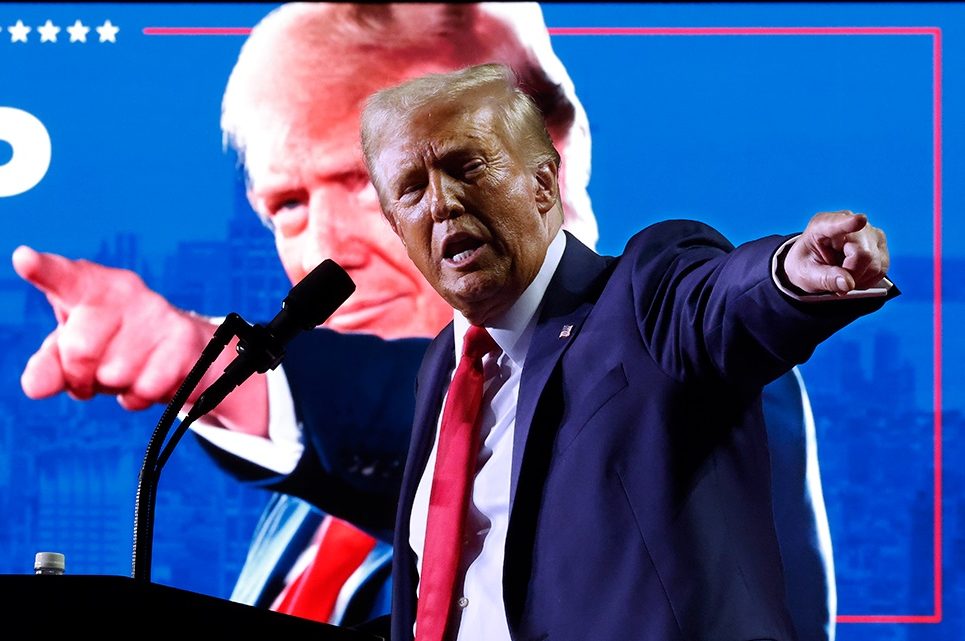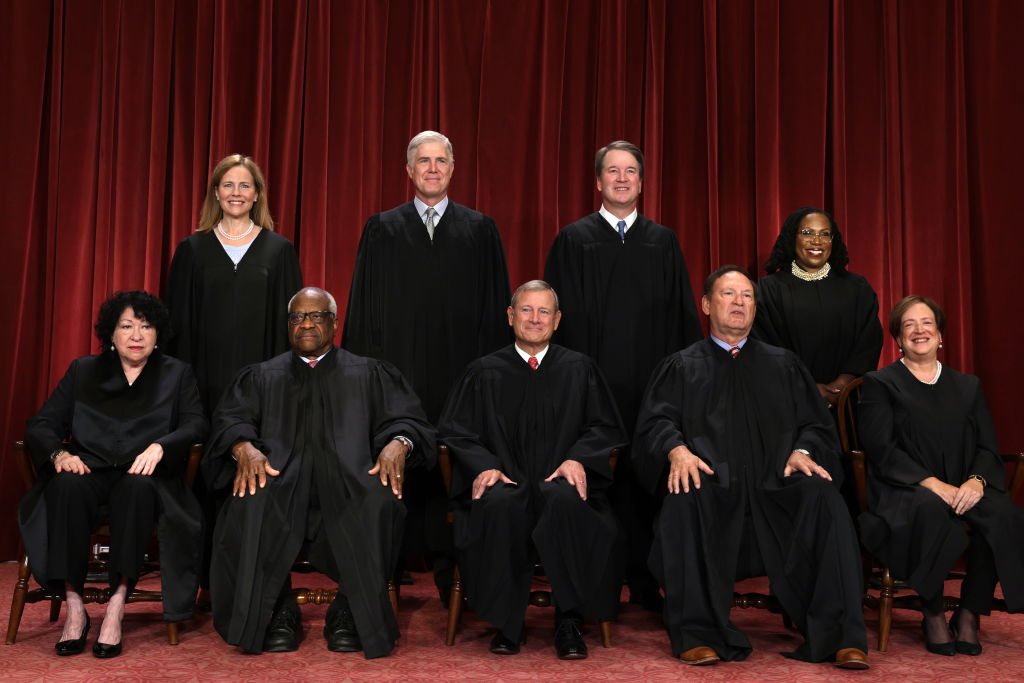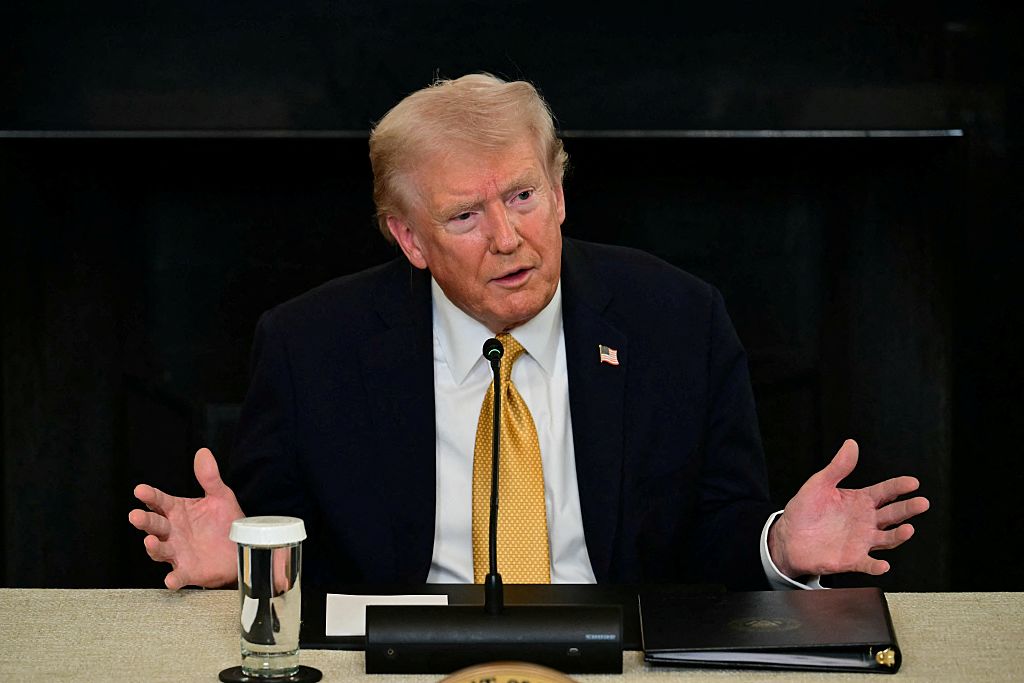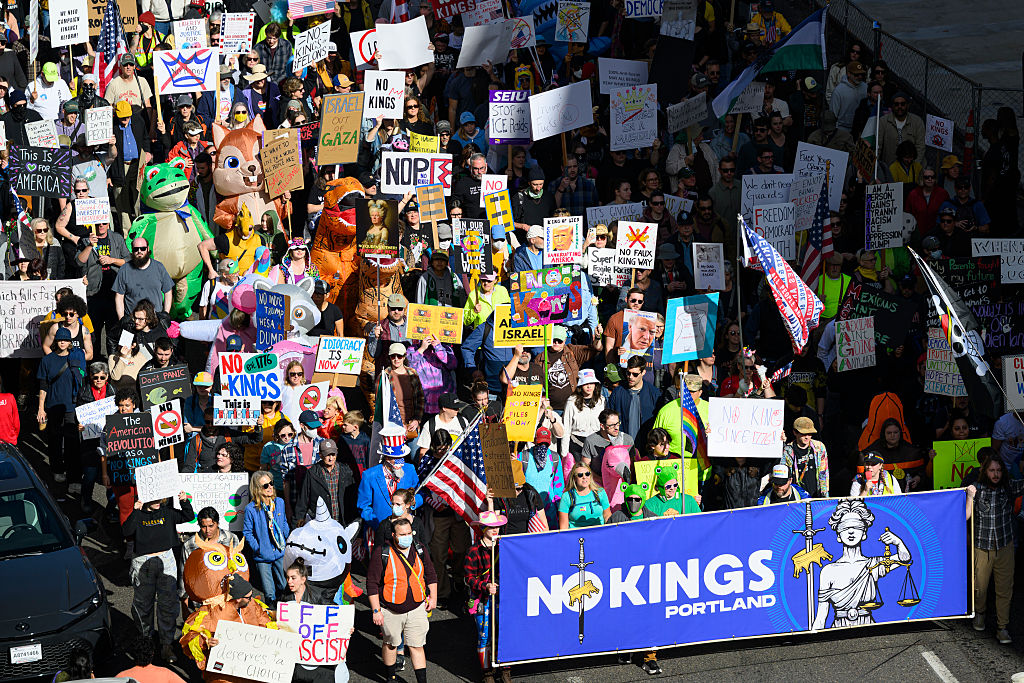It’s always intimidating to write for a readership more clued up than you are. I file this on the very Tuesday the international commentariat have relentlessly claimed is the most consequential election day in American history. Now, in my ignorance, I suspect this superlative reflects the blinkered vanity of the present, and I’ve braved expressing my trust on the record that the country will ultimately survive either dismaying outcome. Yet only you know if an anti-climactic calm still prevails down thousands of American Main Streets; if, rather, the cities are aflame, armed militias reign, supermarket shelves are bare, and the US army is trying to decide which side to back; or if something in-between has manifested, including the freakishly unexpected.
This is not an abstract, distant fear of mine, but an active terror. I take the US national debt personally
I will take refuge in a rare certainty. Whichever substandard candidate ends up winning 2025’s booby prize, he or she will inherit the world’s most gorily red balance sheet, leading a country at least $36 trillion in the hole. Should his or her actual policies remotely resemble his or her campaign promises, the other rock-solid certainty is that the forty-seventh American president will make the country’s humiliating national debt even worse. According to the Committee for a Responsible Federal Budget, over ten years Kamala Harris’s plans would increase that debt by up to $8 trillion, while Donald Trump’s plans would entail additional borrowing of about twice that, so that by 2035 the USA would owe $52 trillion.
You’ve surely encountered those analogies that try to overcome the unfathomability of even $1 trillion by expressing the figuratively astronomical in literally astronomical terms. You know, such as: lined up end to end, a trillion dollar bills would almost reach the sun. But these pictorial mental games don’t work. We can’t fathom the distance between the Earth and the sun, either. So let’s simply agree that $36 trillion-and-counting is a whole bunch.
We all have our deepest fears about the future, and I get that younger people often live in horror of a warmer climate (though many switched that dread for a hyperbolic “genocide” of Palestinians awfully fast). But as for what most threatens our own aspirations and the prosperity of our descendants — other than, granted, all-out nuclear war — I doubt the answer is getting a suntan in December. I think the scariest variable in the human world is money.
That may seem a surprisingly venal assertion from a woman who styles herself as an “artist.” But in 2016 I derived a whole novel from that anxiety, which first stirred in the precarious year of 2008. Unlike many obsessions I mine for material, fascinations I often use up and move on from, since publication the worries that produced The Mandibles have only ballooned. Of course, apocalyptic fiction set in the future is common as dirt, as is staging these nightmare scenarios in the United States. Yet The Mandibles is the only such cautionary tale I know of that extinguishes the American idyll through economics.
The novel kicks off in the piquant centennial of financial disaster, 2029, when the full faith and credit of the grievously insolvent US no longer washes, and the dollar is replaced as the international reserve currency. The president promptly defaults on America’s groaning national debt. Through the fate of one extended family, the novel explores “What does the US national debt have to do with me?” The rest of the world should ask the same question. Only in fiction could the US economy fall apart without bringing the rest down with it.
A reserve currency is the money everyone agrees to accept. It’s used for settling debts between countries or buying commodities priced in that currency. Central banks everywhere therefore hold disproportionately large amounts of this dosh, which functions financially the way English now functions linguistically.
Thus the US has printed vastly more dollars than its own population requires without necessarily accepting the inflationary consequences. If American currency were to lose reserve status due to alarming debt — already too enormous to ever pay back — the dollar would seem like every other trash currency, and all those greenbacks in foreign banks would come flooding home. The subsequent inflation in America would make your head spin.
This is not an abstract, distant fear of mine, but an active terror. I take the US national debt personally. The more financially secure I become on paper, the more insecure I feel. (This is commonplace: first you worry about getting money; then you worry about keeping it.) I repeatedly envision waking to the two-inch-high headline “DOLLAR CRASHES,” and my savings have just turned to ash. I’m getting older, and if I’m so broke overnight that I can’t take care of myself, no broke government will take care of me either.
This profound mistrust of the durability of my savings can show itself in the smallest decisions. On Amazon Prime Day, I bought two beautiful chef’s knives we didn’t really need. But they were half-price, and I calculated that the knives would last longer than the dollars would. Stored boxed in a drawer, they’d still be lethally sharp a few years later, while the dollars they cost will have decayed like mulch.
Most economists doubt the US can pile up debt indefinitely. They mostly differ on when, not whether, the brown stuff will hit the fan. America is running a Ponzi scheme, relying on the reputation of treasuries as the safest investments going. But eventually those bonds won’t feel safe, and no one will want to get stuck holding a deadbeat’s IOUs. Debt interest will consume the congressional budget like a tapeworm. Americans may have their pick of poisons: loss of reserve status, hyperinflation, outright default, or all three. US dominance is based on money, without which you can’t maintain a military and nobody loves you. Democrats? The real “threat to the republic” is bankruptcy. Given that neither feckless presidential candidate campaigned on fiscal prudence, maybe it doesn’t matter who won on Tuesday.
This article was originally published in The Spectator’s UK magazine. Subscribe to the World edition here.

























